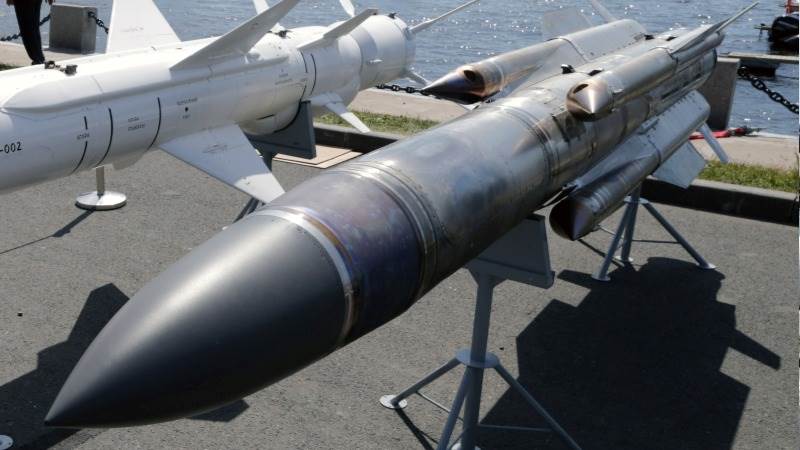US report recommends informing “Iraqi leaders” of consequences of Iran’s use of “Iraqi arena” against Israel
US report recommends informing “Iraqi leaders” of consequences of Iran’s use of “Iraqi arena” against Israel
2024-11-02 07:36
 Shafaq News/ The American “Washington Institute” considered that Iran may resort to a “third round” of attacks against Israel, including by resorting to the “Iraqi option” using “Arqab missiles” launched from Iraqi territory, which may cause casualties in Israel, considering that the geographical distance will be only about 400 km, suggesting to Washington several steps to deal with these possible scenarios.
Shafaq News/ The American “Washington Institute” considered that Iran may resort to a “third round” of attacks against Israel, including by resorting to the “Iraqi option” using “Arqab missiles” launched from Iraqi territory, which may cause casualties in Israel, considering that the geographical distance will be only about 400 km, suggesting to Washington several steps to deal with these possible scenarios.
The American report, which was translated by Shafaq News Agency, indicated that Tehran does not share the American assessment that the two attacks it carried out in April and October had a limited impact on Israel, and therefore it is likely that Iran will decide to attack a third time, perhaps imminently.
The report reviewed statements and positions of Iranian officials, including from the Revolutionary Guard, about the inevitability of responding and taking revenge on Israel for its attack on Iran on October 26, including Iran’s ability to “target everything that the Zionists hold dear, through a single operation,” and the words of the Supreme Leader, Mr. Ali Khamenei, that Iran “must make Israel understand its power.”
After referring to the “Iraq option,” the report drew attention to what the American website “Axios” reported two days ago, that Iraq could be a launching pad for Iranian revenge before the American elections next Tuesday.
The report continued that “Tehran’s partners” in Iraq have recently intensified drone attacks against Israel, with six attacks in August, 37 in September and 111 in October. The report noted that Iraqi factions are also using a new Iranian-supplied cruise missile called the “Arqab,” firing 26 of them at Israel between January 5 and October 5.
The report explained that “what Iran has not done so far is support a ballistic missile attack from Iraq,” adding that if it decides to resort to this option, it can easily place such missiles in advance in areas of Iraq controlled by its “proxies.”
He added that reports published since 2019 indicate that Iran may have already done so. He noted that this scenario could complicate Israeli and American missile defense efforts by creating new and expanded launch areas that must be monitored, which would also reduce warning and interception times.
The report pointed out that the launch sites from Iraq will be 420 kilometers from the Israeli border, compared to about 1,000 kilometers for the closest Iranian missile attack path.
The report considered that by ordering the militias either to use a weapon that they have not previously fired at Israel or to carry out a collective attack using recognized capabilities (drones and cruise missiles), Iran will be able to emphasize the expansion of the conflict and strengthen the “unity of the fronts.”
The report considered that if such an attack from Iraq led to strong Israeli retaliation against Iraq, then it is likely that the Iraqi factions will consider that the United States facilitated the attack or refused to prevent it, which in turn will exacerbate the sharp objections to the American military presence on Iraqi territory, which will prompt Baghdad to accelerate its efforts to ensure a complete American withdrawal.
American Options
The report stated that despite Washington’s limited ability to influence how Iranian leaders perceive the consequences of their actions, it is still interested in doing what it can. It continued by saying that Washington can publish as much evidence as possible after the events of Iranian and Israeli strikes, including satellite imagery and intelligence assessments.
The report added that American officials can also provide intensive briefings to governments that Tehran listens to, such as Baghdad and the Gulf states.
He added that Washington could describe to Iraqi leaders the serious consequences that their country would face if they did nothing as “Iran’s proxies” escalated their attacks on US allies and facilities.
The report hinted at the financial option against Baghdad, saying that in the past, the threat of losing access to large shipments of dollars was an effective means of securing Iraqi action, which, according to what the militias themselves realize, would be a disaster for Iraq.
The report added that Washington could send a message that in the event of new Iranian strikes, it would no longer oppose Israel attacking Iranian targets, including oil infrastructure or even nuclear sites.
shafaq.com
